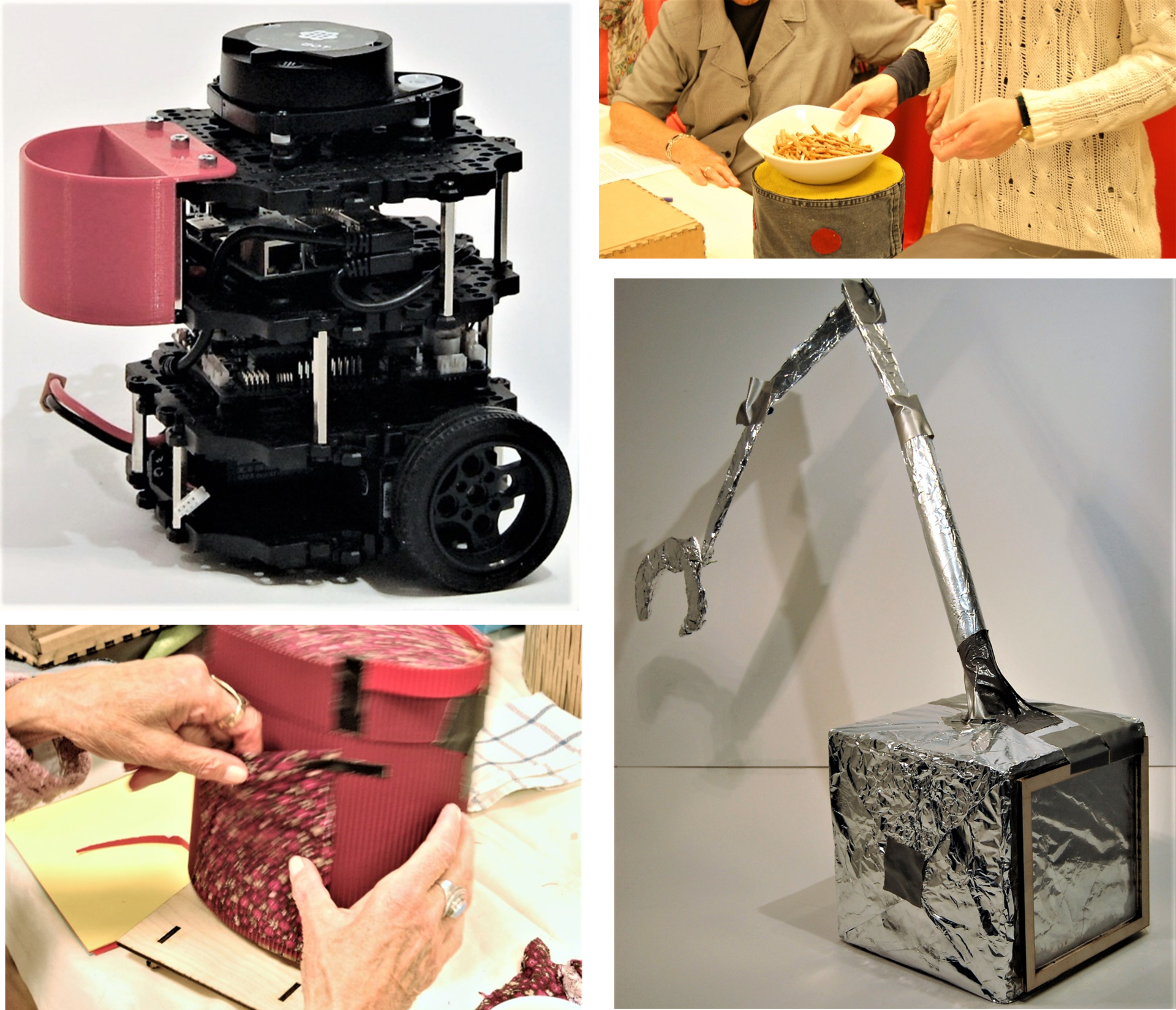A core principle of Participatory Design (PD) has been to develop methods and tools that enable all participants in the design process to learn from each other. The inclusion and heeding of different voices is one of the most important goals of PD processes. Methods and techniques of prototyping have always been important in PD to pursue these goals, and the development of such methods has also been among PDs greatest strengths and contributions. Prototypes function as models which can be seen and reflected on by potentially diverse groups of participants. 1
In this master thesis, you are invited to be part of an ongoing research project engaging with prototyping as method/technique and its role in PD processes. You may design and create your own prototypes. If you do not wish to make prototypes yourself, you may choose to work with prototypes created by others in the design process by, for example, bringing it with you to your participants or conducting evaluations.
If you want to design and create your own prototypes, there will also be an option to choose Research Through Design as your research methodology.
The research project that you will be part of is researching how prototyping can be used as a method in PD processes. We are currently focusing on two main research areas within this topic. You are welcome to create your master thesis topic in relation to one of these topics, but you are free to formulate your research question yourself.
Sub project:
Enabling participation with technically mature prototypes
This sub project will focus on enabling participation through interactive, functional, and technically mature prototypes. We explore how this can support participants to develop the competence they need to create and share ideas and make design decisions.
We also explore the role of Independent Prototypes that participants can use over longer periods of time to participate on their own terms, investigating more complex matters of human relationships with technology.
Sub project:
Communicating about technological design possibilities in PD processes
Conveying technical possibilities in the design space to end-user participants can be challenging. However, communicating possibilities is important to enable participants to take part in design decisions. This Masters’ thesis focuses on enabling participation through prototyping with generative tool kits to convey possible interactions to the participants in the design process.
Master students that are interested in prototyping with microcontroller platforms such as for example Arduino, Micro:Bit or Raspberry Pi are invited to take part in developing a generative prototyping tool kit for a participatory design process.
Students do not have to prototype themselves, they can engage with problems such as mutual learning, mastery, understanding and generating design possibilities through collaborative prototyping as well.
Collaboration on lab activities and design workshops
The students who want to work on this topic will collaborate closely with the ongoing research efforts and design lab activities of faculty and Ph.D. students in the research group. We include students in existing or new meetings, workshops, and collaborations with internal and external partners. In addition to lab activities, there will be structured reading groups and prototyping workshops organized by faculty and PhDs affiliated with this thesis topic.
Suited for student groups
This thesis topic is suited for students who want to work as part of a larger group of both faculty, PhDs, and students, and is also interested in having students who will want to write their thesis together. We have very positive experience with students working together in parts, or all, of their thesis work, which has proven to be extra helpful in situations involving practical work, e.g., prototyping, fieldwork, and workshops.
1: Robertson & Wagner, 2013
Suggested courses:
This thesis can be written in English or Norwegian.


.jpg)
.jpg)